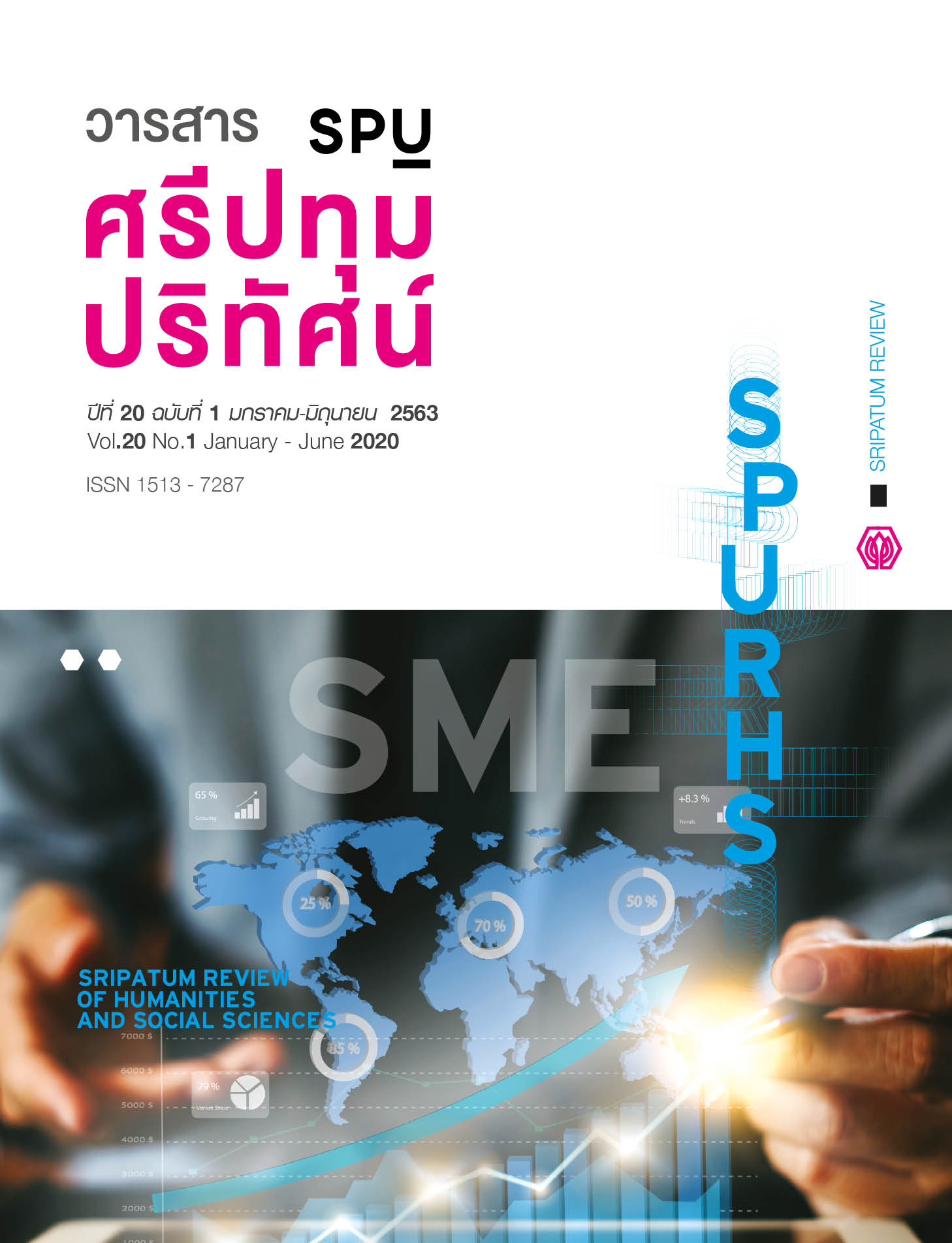Strategies of Assessment for Learning for Learners in the 21st century
Main Article Content
Abstract
This article aims to present the concept of learning assessment, with the important objectives of obtaining the information for improvement of the learners’ learning. The changes of the world society in the 21st century relate to the learning management of teachers which is for understanding of what matters are learned by the learners and how well they are learning. Teachers are required to have a variety of tools and techniques to do the assessment including the learning contract, questioning, observation, learning records, self and peer assessments, and feedback information to enable the teacher to understand the learning outcomes of learners. Teachers must determine the objectives of the learning management clearly to be the criteria that can be used to determine whether or not the learning of the learners is in accordance with the goals. The aims and objectives of learning management should be told to learners, and teachers should listen to the feedback opinions of learners in order to encourage the learners to self-assess and improve themselves in learning. Learners are not going to achieve their important goals if the teachers who are involved do not apply the assessment results for improving their learning activities management in order to develop the learners’ sustainable learning process skills.
Article Details
1. กองบรรณาธิการสงวนสิทธิ์ในการพิจารณาและตัดสินการตีพิมพ์บทความในวารสาร
2. บทความทุกเรื่องจะได้รับการตรวจสอบทางวิชาการโดยผู้ทรงคุณวุฒิ แต่ข้อความและเนื้อหาในบทความที่ตีพิมพ์เป็นความรับผิดชอบของผู้เขียนแต่เพียงผู้เดียว มิใช่ความคิดเห็นและความรับผิดชอบของมหาวิทยาลัยศรีปทุม
3. การคัดลอกอ้างอิงต้องดำเนินการตามการปฏิบัติในหมู่นักวิชาการโดยทั่วไป และสอดคล้องกับกฎหมายที่เกี่ยวข้อง
References
Berry, R. (2008). Assessment for learning. Hong Kong: Hong Kong University Press.
Chaiso, P. (2017). Evaluation of learners' learning: an important process for the teaching profession. Bangkok: Department of Education, Faculty of Education, Kasetsart University. (Copied documents) (in Thai)
Kanjanawasee, S. (2013). Classical test theory. 7th edition. Bangkok: Chulalongkorn University. (in Thai)
Lambert, D. and Lines, D. (2000). Understanding Assessment: Purposes, Perceptions, Practice.
London: RoutledgeFalmer.
Ministry of Education. (2008). Basic Education Core Curriculum B.E. 2551 (A.D. 2008). [Online]. Retrieved May 11, 2014, from: http://www.psc.ac.th/docs/laws/education_core2551.pdf. (in Thai)
Li, Y. and Chen, C. (2016). Peer- and self-assessment: A Case Study to Improve the Students’ Learning Ability. Journal of Language Teaching and Research. 7(4), 780-787.
Office of the Basic Education Commission. (2011). Guideline for measuring and evaluating learning outcomes to the basic education core curriculum B.E. 2551 (A.D. 2008). 3rd edition. Bangkok : The Agricultural Co-operative Federation of Thailand Limited. (in Thai)
______. (2015). Guidelines for organizing 21st century learning Skill That focuses on professional competencies. [Online]. Retrieved November 29, 2015, from: http://www.secondary11.go.th/2016/en/download/files/guidance10.pdf (in Thai)
Panich, V. (2013). How learning has occurred. Bangkok: Printing Mass Products. (in Thai)
Silva, E. (2008). Measuring skills for the 21st century. Education Sector. [Online]. Retrieved December 5, 2016, from: http://elenamsilva.com/wp-content/uploads/2013/05/MeasuringSkills.pdf
Sistikorn, S (2018). A construction of a mathematical thinking styles inventory and a study of the relationships among the mathematical thinking styles, gender, levels of mathematics achievement and type of school. Sripatum Review of Humanities and Social Sciences, 18(2), 18-26. (in Thai)
Stobart, G. and Gipps, C. (1997). Assessment: A Teachers' Guide to the Issues. London: Hodder and Stoughton.
Stufflebeam, D.L. and Shinkfield, A.J. (2007). Evaluation Theory, Models, and Applications. City, U.S.A.: Jossey-Bass.
Wagner, T. (2008). The Global Achievement Gap. [Online]. Retrieved April 21, 2020, from: https://slideplayer.com/slide/6648735/
Zhang, H. (2015). 21st Century Skills. [Online]. Retrieved September 9, 2016, from: https://onlineacademiccommunity.uvic.ca/learningdesign/wpcontent/uploads/sites/
/2015/06/Alan-Ebook.pdf


